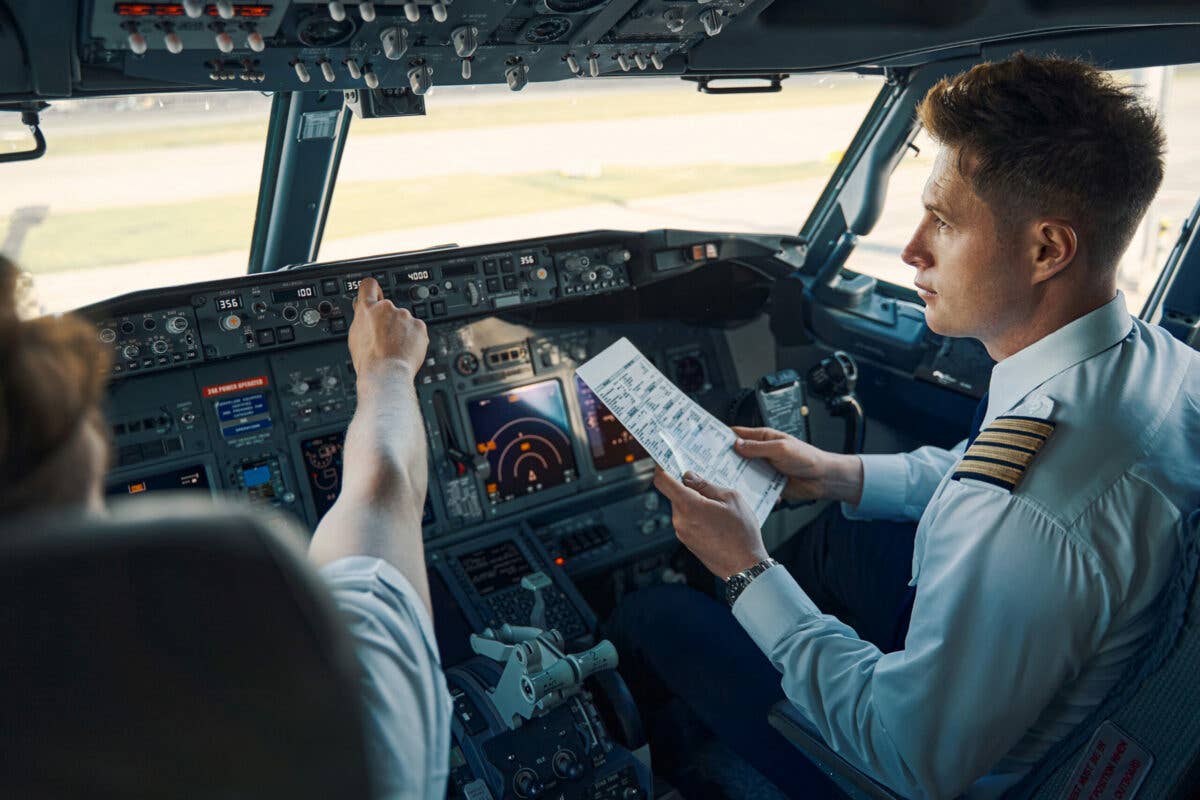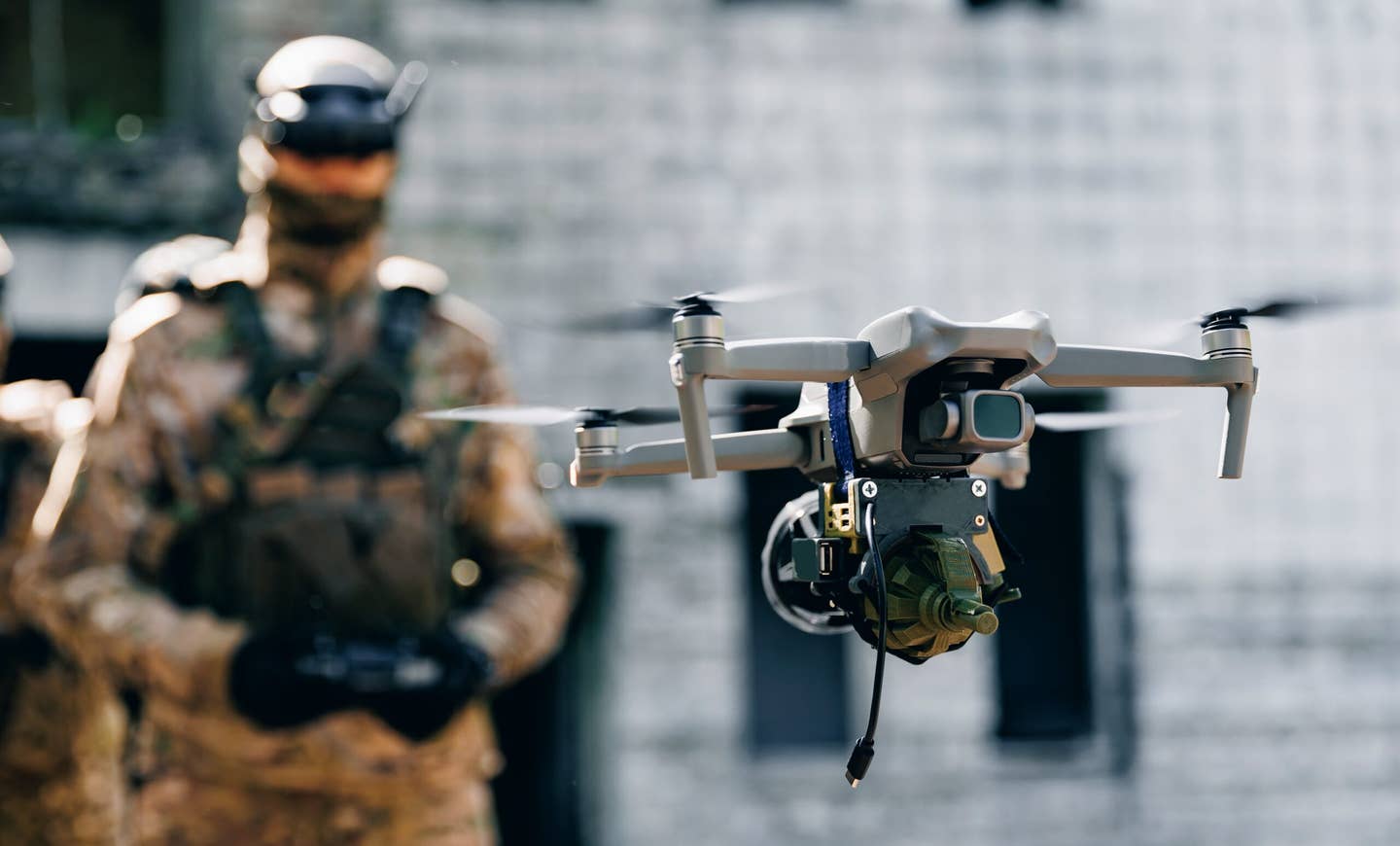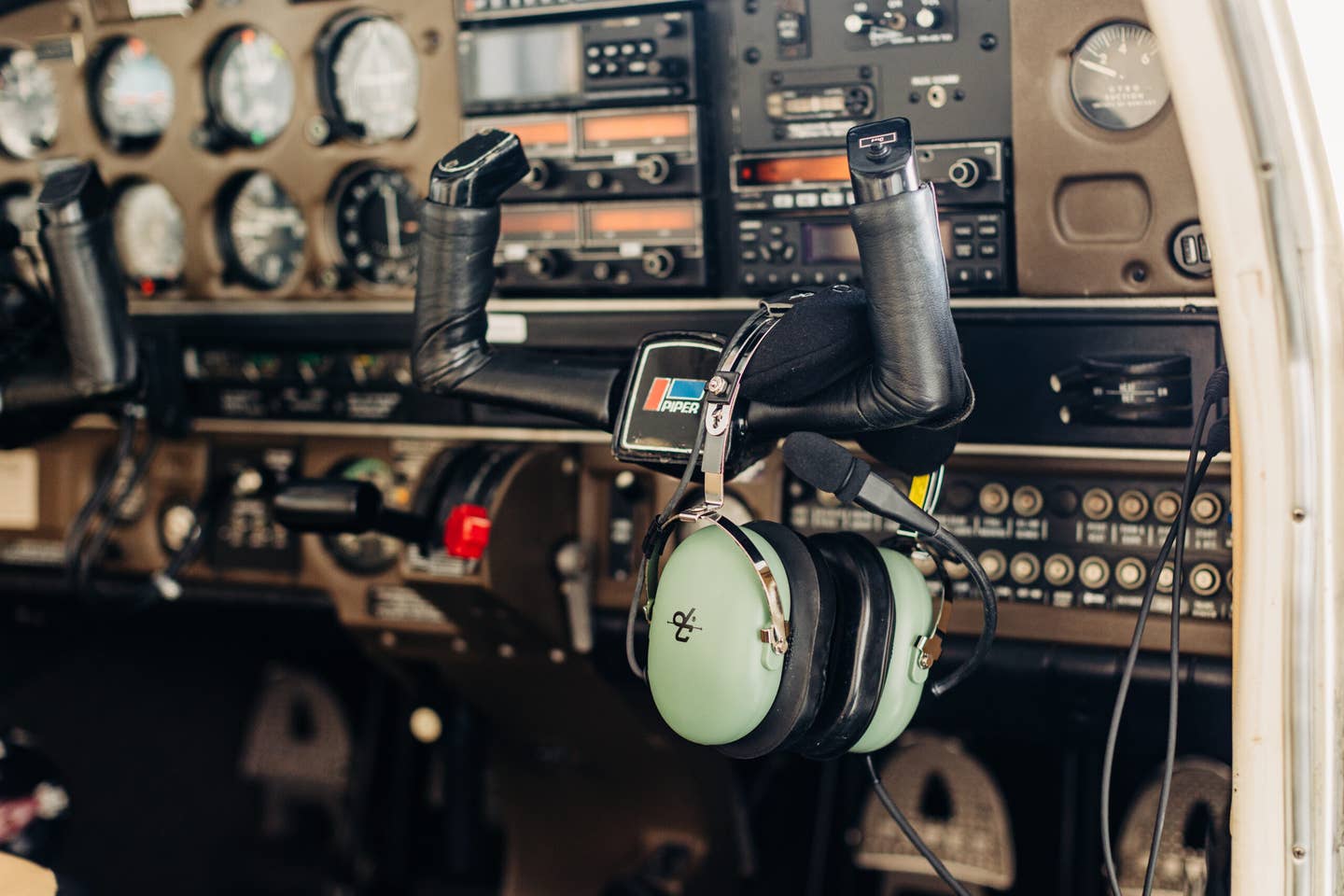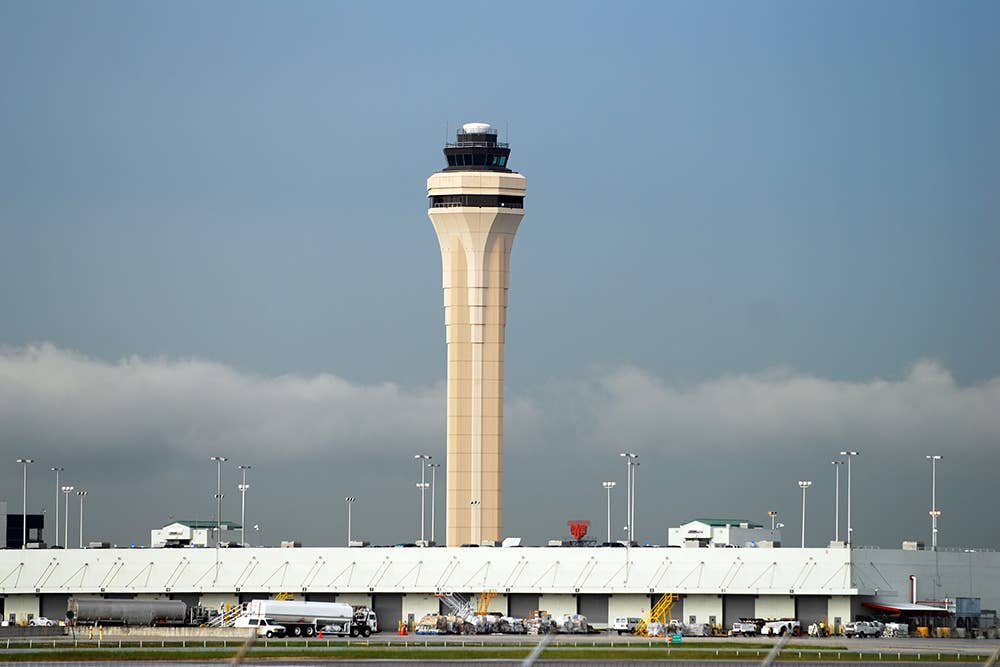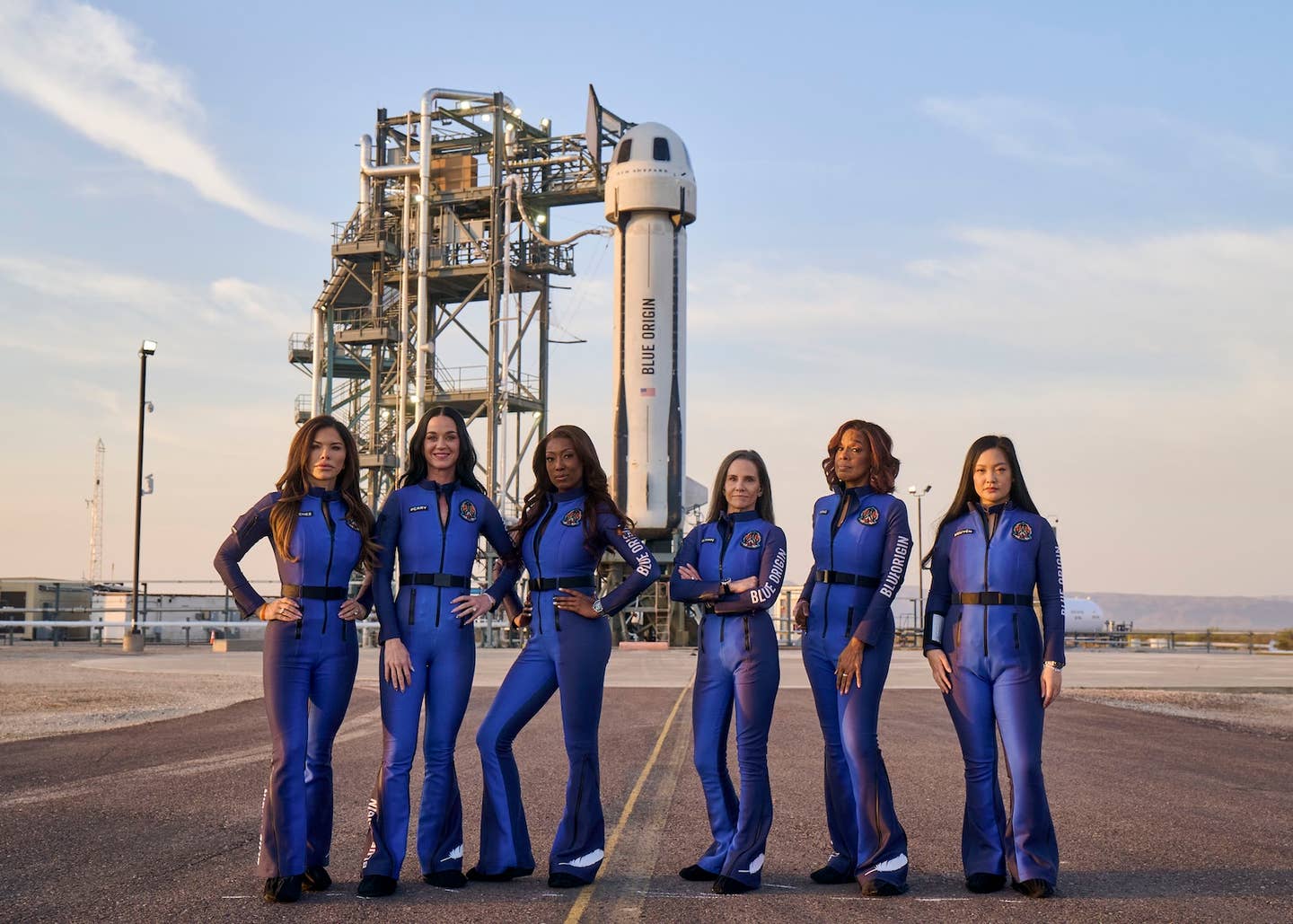Blue Origin Flights to ‘Soon’ Resume After FAA Closes Investigation
The agency had grounded Blue Origin’s New Shepard suborbital rocket, which it uses to bring paying customers to the edge of the atmosphere.
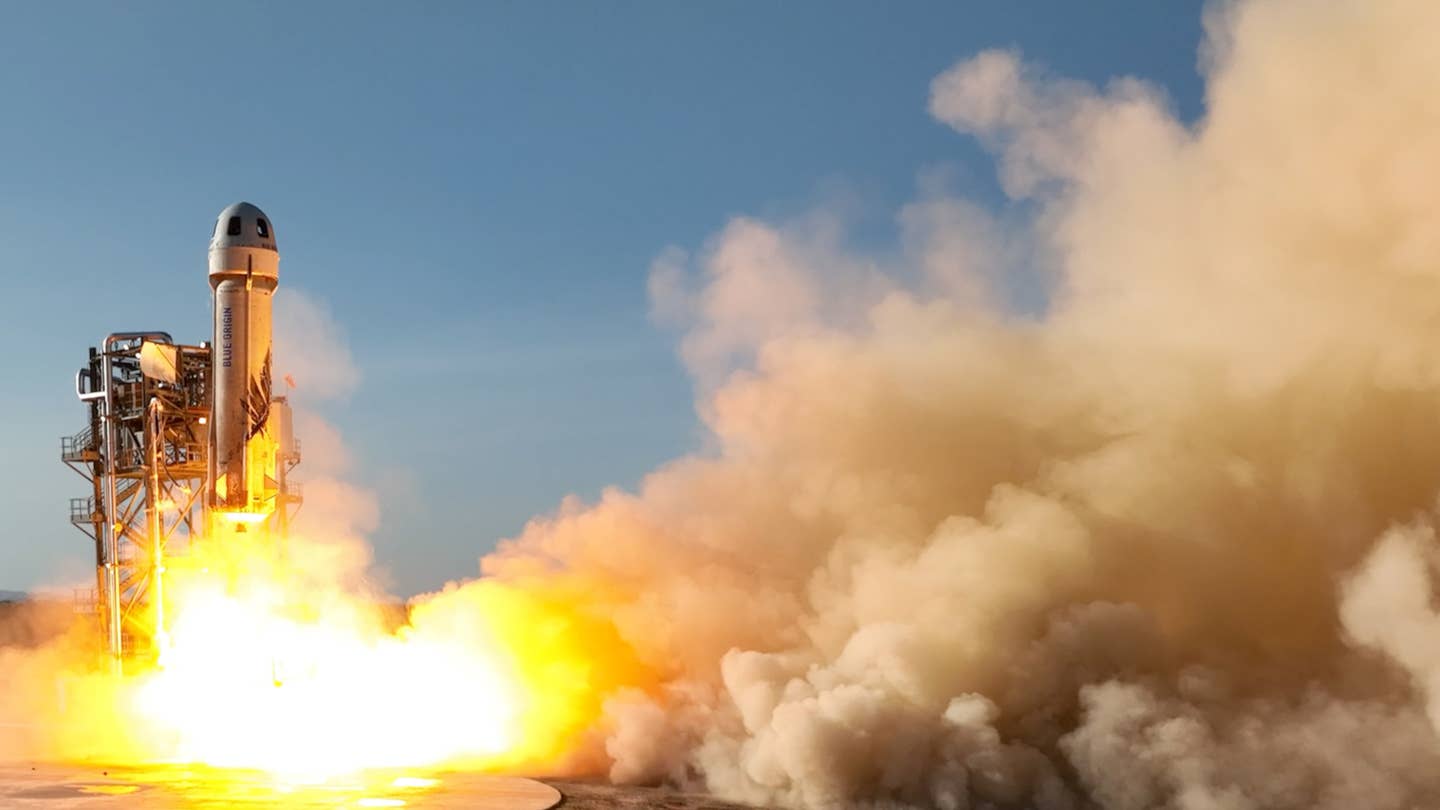
Blue Origin’s New Shepard rocket lifts off from Launch Site One in Texas for the company’s NS-22 mission in August 2022. [Courtesy: Blue Origin]
After a year of inactivity, Jeff Bezos’ space tourism venture could soon be back in orbit.
This week, the FAA closed its mishap investigation into New Shepard 23, an uncrewed, suborbital cargo mission that crashed in September 2022. The investigation, which looped in NASA and the National Transportation Safety Board as official observers, grounded Bezos-owned Blue Origin’s New Shepard rocket, which in the months prior had ferried a total of 31 people to the edge of the atmosphere.
To be clear, New Shepard is not yet cleared for takeoff. That won’t happen until Blue Origin implements 21 corrective actions identified by the FAA—including an engine redesign—to prevent a similar incident. After that, the company can modify its launch license, giving it the green light to resume flying.
In a statement to FLYING and a post on X, formerly Twitter, Blue Origin confirmed it received the FAA’s notice and “[plans] to fly soon.”
We’ve received the FAA’s letter and plan to fly soon. https://t.co/J2bCKETQe7
— Blue Origin (@blueorigin) September 27, 2023
But just how soon? In a March update, Blue Origin said higher-than-expected operating temperatures created a “thermo-structural failure” in one of New Shepard’s nozzles. It added that it had already begun tweaking the spacecraft and expected to fly again late this year.
“Blue Origin is implementing corrective actions, including design changes to the combustion chamber and operating parameters, which have reduced engine nozzle bulk and hot-streak temperatures,” the company said. “Additional design changes to the nozzle have improved structural performance under thermal and dynamic loads.”
The company appeared to reiterate the late 2023 target in its statement—and that may be more than just talk. Earlier this month, two sources familiar with Blue Origin’s launch manifest told Ars Technica the company is tentatively planning an uncrewed test flight for early next month. If all goes well, it could launch its first crewed mission since August 2022 in mid-February.
How We Got Here
Included in the FAA’s announcement of the investigation’s closure was an agency assessment of what went wrong last September. It agreed with Blue Origin: “Higher than expected engine operating temperatures” caused a structural failure in one of the engine nozzles.
Just over one minute into the flight, which lifted off from the company’s Launch Site One in Texas, both New Shepard and its cargo capsule reversed course back to Earth. An onboard launch vehicle system detected the issue with the nozzle, triggering an abort and separation of the capsule from the rocket (as intended) and shutting down the engine.
The capsule floated gently to the desert floor on parachutes. The propulsion module, on the other hand, was destroyed on impact. However, all debris landed within a designated hazard area, and no injuries or property damage were reported.
Now, Blue Origin will need to address the 21 actions laid out by the FAA. These include a redesign of both the engine and nozzle components and unspecified “organizational changes.” The latter is detailed in the FAA’s letter to Blue Origin, which is not publicly available because it includes proprietary data and U.S. Export Control information, the FAA said.
What’s Next?
New Shepard is the vehicle Blue Origin relies on for its space tourism business, which carries people and cargo to about 340,000 feet in altitude for a few minutes of weightlessness. The experience is similar to the one offered by rival Virgin Galactic, owned by another billionaire business mogul, Richard Branson.
So far, Blue Origin has made a handful of successful flights with New Shepard. The company’s passengers have included Bezos himself, Star Trek icon William Shatner, and Good Morning America host and former NFL defensive end Michael Strahan. Aerospace pioneer and “Mercury 13” candidate Wally Funk set several records during her flight—some since superseded. Actor and comedian Pete Davidson also booked a seat before backing out.
While the “organizational changes” specified by the FAA are unclear, Blue Origin this week shook up its top brass with the appointment of Dave Limp, who will depart his role as senior vice president of devices and services at Amazon. Limp spearheaded the launches of products such as Alexa and Echo, known to be pet projects of Bezos.
The Amazon executive will replace outgoing CEO Bob Smith, who oversaw New Shepard’s maiden voyage, in December. Under Smith, Blue Origin has struggled to launch its New Glenn super-heavy lift rocket, missed out on lucrative Pentagon contracts to rivals SpaceX and United Launch Alliance, and faced accusations of a toxic workplace permeated with discomfort and misogyny. The firm’s Orbital Reef space station partnership with Sierra Space is also reportedly on the rocks.
Blue Origin isn’t the only company tied up with the FAA. Elon Musk-owned SpaceX faces its own mishap investigation into the April 20 crash of Starship, a super-heavy lift rocket akin to New Glenn. That investigation remains open, and as of July 31, SpaceX had yet to file paperwork outlining the corrective actions it would take.
However, the company continues to launch droves of Starlink satellites and conduct International Space Station crew rotation missions for NASA with its Crew Dragon. Virgin Galactic, meanwhile, has flown commercial missions in back-to-back-to-back months, with a fourth planned for Thursday.
When New Shepard was first sidelined, Blue Origin looked like the clear leader in space tourism, with a half dozen commercial flights under its belt. At the time, Virgin Galactic itself was grounded and had yet to serve paying customers.
By now, Blue Origin’s competitors have leapfrogged it in the modern space race. But with New Shepard getting closer to reintroduction, the door is still very much open for Bezos to recapture the lead.
Like this story? We think you'll also like the Future of FLYING newsletter sent every Thursday afternoon. Sign up now.

Sign-up for newsletters & special offers!
Get the latest FLYING stories & special offers delivered directly to your inbox

